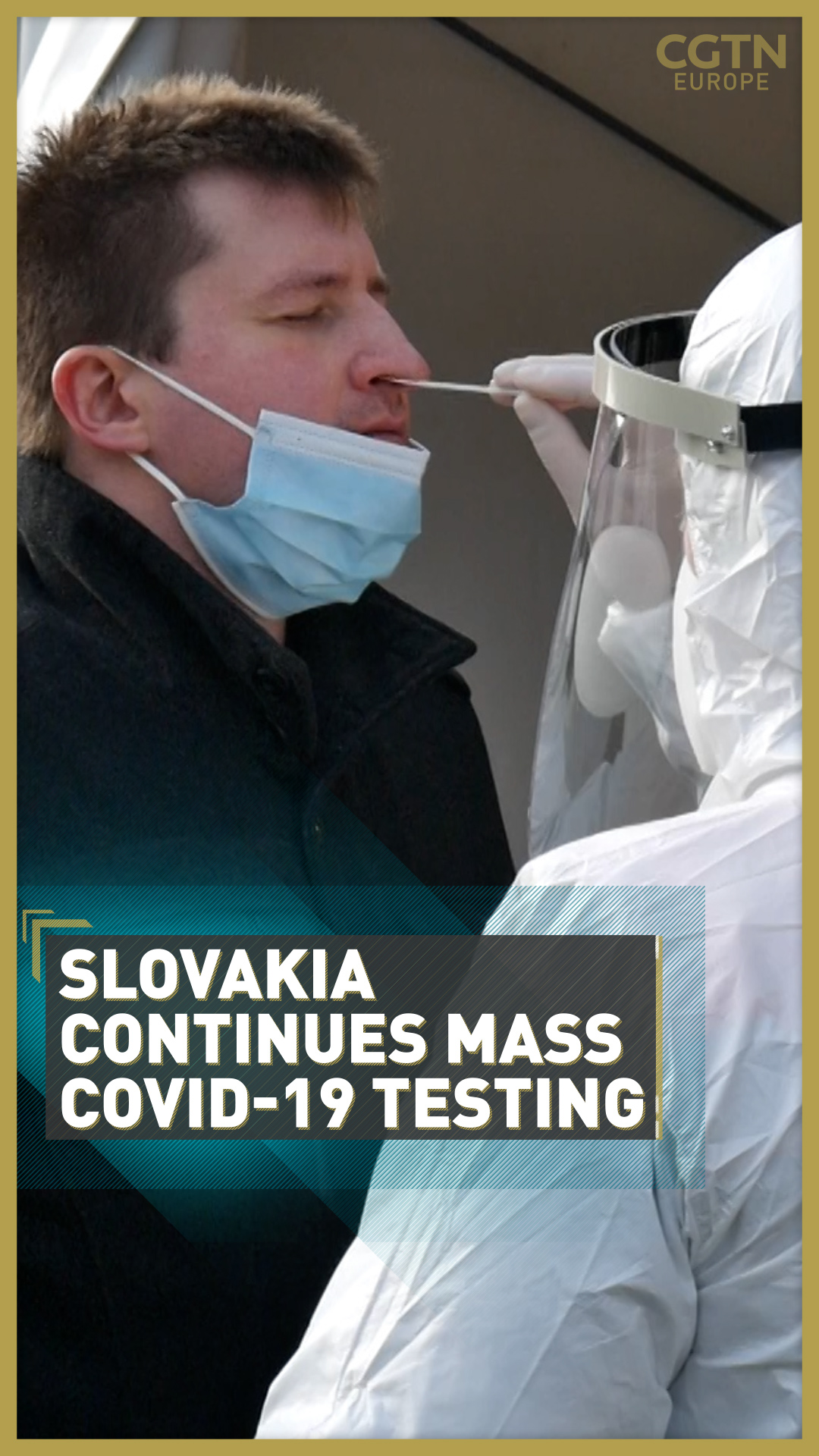02:44

It is a cold and foggy Saturday morning in Bratislava. For the second weekend in a row, people living in the Slovakian capital are queuing at a COVID-19 test facility next to the City Zoo.
Last weekend 3.6 million of the country's 5.4 million population were tested for COVID-19, with about one percent returning positive results.
This weekend roughly half of the country has been tested again in the regions with the highest number of infections, with just 0.63 percent returning positive results. Most of these areas were in the northern part of Slovakia, close to the borders with Poland and Czechia.
The government has adopted a strategy of repetitive testing in those areas in order to identify more infections as the virus spreads and also to reduce the risk of incorrect results from antigen tests, that could result in spread from those getting false negatives.

Rapid antigen tests made in South Korea are being used for the mass testing and give results within half an hour. PCR tests are more accurate but costlier and take longer to process in labs.
While most European countries are using contact tracing and lockdowns to fight the pandemic pandemic, several cities, such as Liverpool, are now looking to change strategy and test their entire population.
Slovakia is the largest country so far to carry out a nationwide testing program. Those who test positive are required to isolate, while those who are negative can carry on with normal life, with shops, bars and restaurants all remaining open.
But opinion is split on the government's approach. "I think many people aren't happy about it," said a young man outside Bratislava's train station. "But they have to be tested because they want to go out and you cannot go out without a negative test."
Another Bratislavan resident added: "We have to find those who are really infected."

Slovakia is attempting to test its entire population for COVID-19 and avoid the stringent lockdowns being used by other European countries. /CGTN
Slovakia is attempting to test its entire population for COVID-19 and avoid the stringent lockdowns being used by other European countries. /CGTN
Slovakia's testing program has drawn interest from across Europe. A UK government team visited the country last weekend to witness the testing. Germany's Angela Merkel is also keen to draw lessons from this nationwide experiment.
But unlike other countries that have adopted a similar approach, such as New Zealand, Slovakia's border crossings are currently still open. The Slovakian government, fearing that new cases will be re-imported, wants to reintroduce border controls by November 15.
But Slovakia's defense minister Jaroslav Nad said the country has already put in some measures to limit the risk of reinfection from travelers or citizens returning to the country from abroad.
"If you want to come to Slovakia then you need to have a certificate of negative testing," he said.

Rapid antigen tests made in South Korea are being used for the mass testing programme and give results within half an hour but there are concerns that the tests aren't accurate enough. /CGTN
Rapid antigen tests made in South Korea are being used for the mass testing programme and give results within half an hour but there are concerns that the tests aren't accurate enough. /CGTN
Another stumbling block is political opposition from the country's Social Democratic Party, with deputy chairman Erik Kalinak claiming that checking whether or not a person has a negative test certificate is a violation of personal data protection.
"The paradox is that you don't have to prove yourself to a policeman, employer or saleswoman in a store at all," he argued. "The Office for Personal Data Protection said this quite clearly."
The opposition as well as the medical chamber of Slovakia call the mass testing a waste of resources and criticize the antigen tests being used as not very reliable.
Nevertheless, as contact tracing continues to struggle in European countries where infections are soaring at a rapid rate, mass testing could be a valid alternative.
Video editor: Nuri Moseinco

